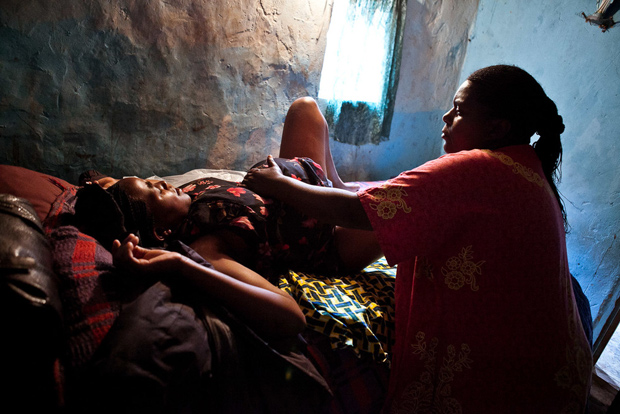A new study by the World Health Organization has revealed that many women suffer mistreatment during childbirth especially in lower-income countries.
A new evidence from the study, published in the Lancet, showed that over one-third of women in four lower-income countries experienced mistreatment during childbirth in health facilities.
Three of the countries where the study was conducted were in Africa, namely Ghana, Nigeria, Guinea. The fourth country is Myanmar.
Evidence published in the report revealed that younger, less-educated women were those most at risk of abuses.
Those abuses include physical and verbal abuse, stigmatization and discrimination.
Other cover medical procedures conducted without their consent, use of force during procedures, and abandonment or neglect by health care workers.
The study also found that 838 (42%) of 2,016 women interviewed experienced physical or verbal abuse, stigma or discrimination.
14% of those studied also experienced physical abuse – most commonly being slapped, hit or punched.
According to the study there were high rates of non-consensual caesarean sections, episiotomies (surgical cuts made at the opening of the vagina during childbirth) and vaginal examinations.
Further breakdown
2,016 women were observed during labour and childbirth in Ghana, Guinea, Myanmar.
Interviews were also conducted with 2,672 women after the birth. There were similar levels of mistreatment to the direct observations.
Among the 2016 women observed by the researchers, 35 (13%) caesarean births were conducted without the woman’s consent.
190 of 253 were also subjected to episiotomies (75%). Vaginal examinations occurred without consent in 59% of cases (2611 of 4393 exams).
In addition to physical abuse, 752 (38%) of the 2,016 women were observed to experience high levels of verbal abuse.
Most often these abuses include being shouted at, scolded and mocked. 11 women experienced stigma or discrimination, typically regarding their race or ethnicity.
Fixing the problem
The WHO in a statement said it’s “guidelines promote respectful maternity care for all women, which is care that maintains ‘dignity, privacy and confidentiality, ensures freedom from harm and mistreatment, and enables informed choice and continuous support during labour and childbirth”.
According to the study health-care providers require support and training to ensure that women are treated with compassion and dignity.
Possible strategies according to the researchers include:
- Redesigning labour wards to meet the needs of women, including allowing for privacy and labour companionship;
- Improving the informed consent process around all medical interventions;
- Providing sufficient mentoring and support for health workers to help them deliver better quality care;
- Allowing all women who want one to have a companion of their choice with them throughout labour and childbirth;
- Building public demand for high quality maternity services that provide women-centred care and do not tolerate any form of mistreatment.
The WHO said the “findings of the study should be used to inform policies and programmes to ensure that all women have positive pregnancy and childbirth experiences, supported by empowered healthcare providers within well-functioning health systems.”
Source: Africafeeds.com



